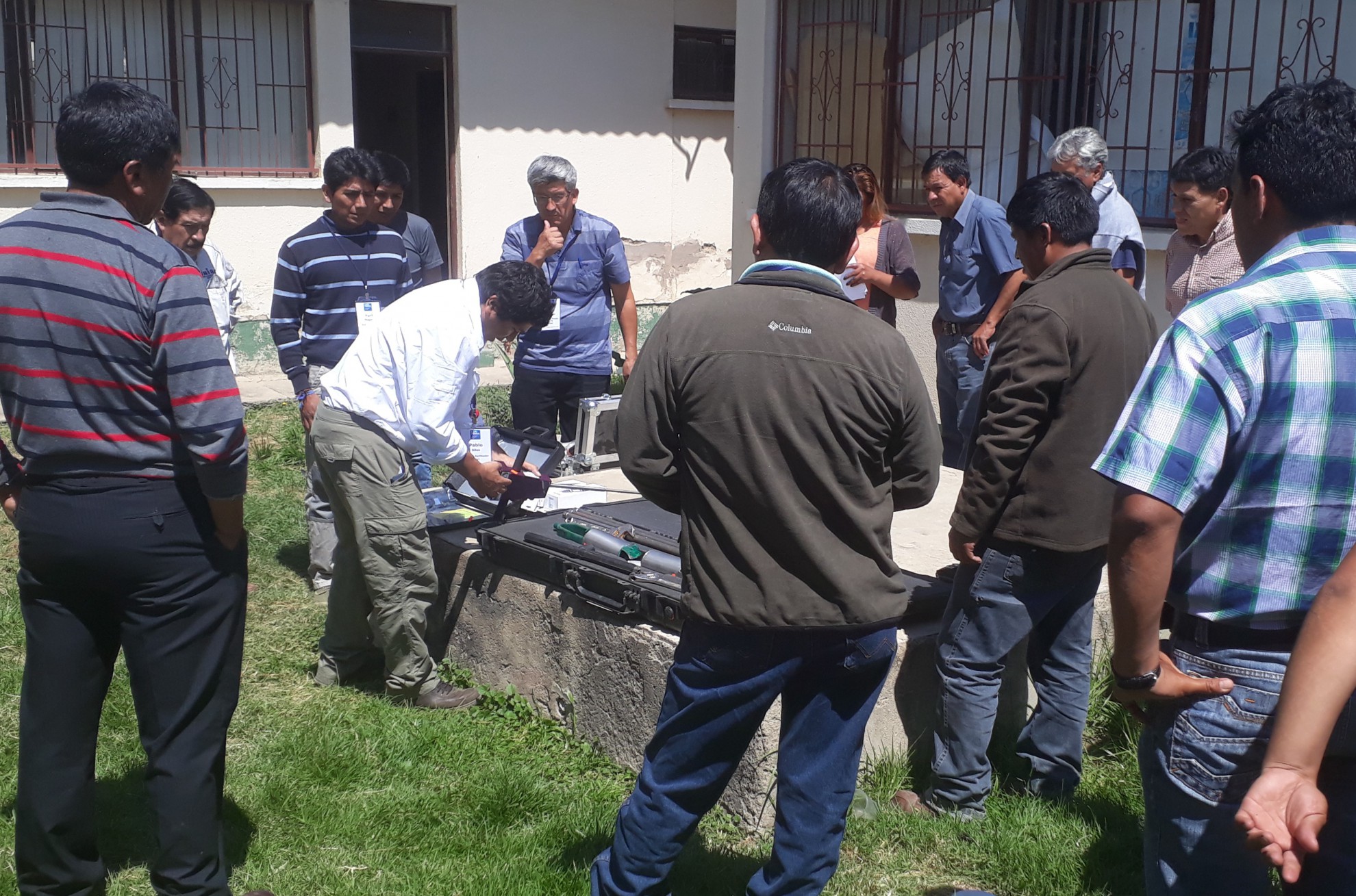Sustainable soil management in Bolivia
18-04-2019The workshop on “Soil test interpretation and strategies for sustainable nutrition” successfully provided methodologies and tools for the interpretation of soil analyses for Bolivian researchers and agricultural extensionists.
The workshop was held in the cities of Cochabamba and La Paz from 9 to 12 April. This event was organised by the local Agriterra office in Bolivia, together with the National Institute for Tropical Agriculture Innovation (INIAF) and the National Coffee Programme (Programa Nacional de Café), and was funded by the RVO, the Netherlands Enterprise Agency.
The purpose of the workshop was to provide the participants (INIAF extensionists and researchers and staff of the National Coffee Programme) theoretical knowledge, as well as practical methodologies and tools to help them determine what kind of fertilisation is required based on nutrient extraction and soil analysis.

The facilitator was Dr Pablo Siles, a Nicaraguan scientific researcher in soil at the International Center for Tropical Agriculture (CIAT). The workshop consisted of two main events: the first event lasted three days and took place in Cochabamba, where 18 INIAF professionals participated, and the second event lasted one day in La Paz, where 10 staff members of the National Coffee Programme participated. The participants learned about very useful tools and methodologies that they can apply to improve the yields of the crops with which these two institutions are working.
Dr Félix Marza, the INIAF National Innovation Director, mentioned that “for us, it’s very important to promote sustainable soil management. The participants were very lucky to have received first-hand access to this knowledge. We’re planning to systematise this workshop in order to share it with staff who could not attend and to benefit the producers with whom we work.”
Dr Siles shared his expertise and knowledge during the workshop and thought that this experience was “pleasant because the participants showed a lot of interest since they felt that the content of the workshop met their expectations.” He also mentioned that “we tried to offer the different specialists in each of the products the knowledge that they need to help them interpret the soil analyses, which they can use to calculate deficiencies and the amount of nutrients available in the soil in order to make the best possible recommendations to the producers.”
Eusebio Calani, a researcher at the INIAF Quinua Programme, also participated in the workshop and confirmed what Dr Siles said:
“The expectations were met...soil analysis is very important and I’m very satisfied with what I’ve learned during the three days that the workshop lasted. From now on I’m going to apply the methodology for calculating soil requirements.”
This workshop is part of the “Soil Quality and Health” project that Agriterra implemented and that was funded by the RVO; it included the visit of two other experts, one is an expert in cacao production and the other in quinoa. The aim is to evaluate the soil quality of the farmers who are members of the cacao producers cooperative, El Ceibo, and of ANAPQUI, the national association of quinoa producers, both of which are Agriterra clients in Bolivia.
The collaboration with the public institutions who participated was a very fruitful experience and provided a basis on which to further develop joint efforts aimed at benefitting the producer organisations, the clients of Agriterra, and these and other public entities. Eddy Barreta, agronomist and head of the research unit, mentioned that “this was a very good opportunity for Agriterra and INIAF to work together and I hope that in the future we will continue to cooperate.”
